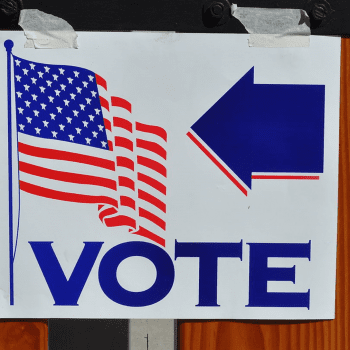Is it the fault of The Republican Party that Trump is the nominee?
Depends on definitions, I suppose.
Certainly, the Establishment fought tooth-and-nail against him. Well, a faction did, anyway. The others, when it came down to it, weren’t keen on anyone else besides Bush, or maybe Rubio, and some were quite ready to make their peace with him.
Is the Establishment to blame for being a sucky group of people, for running the Republican Party in a manner that left the rank-and-file so dissatisfied that they turned to Trump? They may indeed have been a sucky group of people, they may indeed have alienated people, have given the rank-and-file the impression that they cared only about their own enrichment, but I think it’s taking the concept of “blame” or “fault” too far to say that they have caused the Trump phenomenon. Likewise, the accusation that Obama is to blame for Trump because of his divisiveness, doesn’t hold water either.
What’s more, unlike the Tea Party phenomenon, which drew its support from the Republican base, Trump’s support is coming from new Republicans, or formerly indifferent Republicans. Supporters and opponents alike agreed that Trump’s votes came from outside — it’s just that supporters gleefully pointed to the huge increase in GOP primary voters and drop-offs among Democrats, and statements by Trump voters that they hadn’t voted in a Republican primary as a positive sign, and opponents used those figures to discount him as “not a real Republican.”
The conventional wisdom has always been, also, that Trump’s supporters come from the disaffected white working class, who believes their problems to be ignored by both the mainstream Republican and Democratic parties. (That is, the Democratic party thinks they’re reaching out to them, but they’re perceived as being more interested in minority groups and the college-educated.) But recent surveys report that Trump’s supporters span the spectrum from poor to middle class to wealthy, from poorly- to well-educated.
And yet: do they not listen to the man? Can they not hear him saying nonsense like, “Ted Cruz’s father was an associate of Lee Harvey Oswald”? Do they not comprehend that the man has no clue about policy (his healthcare plan is “I’m going to take care of everybody”, for crying out loud!), and that governing success is not just a matter of “putting America first” or “getting the right people” or “being a good negotiator” but requires a serious, sustained effort to understand the world around you, in terms of things like international affairs, and healthcare and trade and the economy? Are they not the teensiest bit concerned about issues such as Trump University and its pending lawsuits?
The people to blame for Trump are his supporters. And, no, it’s not a matter of the GOP being the so-called “stupid party.” His voters represent a cross-section of America, and it’s not something you can write off as “they’re stupid Republicans.” They are Americans, and they are not fundamentally defined by their political party, and you can’t just mock them, insult them, tell them that their time is past, they’re lives don’t count, they might as well just die because that’s what we’re all waiting for, so as to usher in a brighter future.
Most of them are genuinely convinced that Trump is the right choice to govern this country (though a minority are protest voters who are happy to have Trump as the GOP nominee to spite the GOP, not caring that Clinton will win as a result, if it forces the GOP to reform itself in some way in 2020, though they don’t really seem to have a path forward on this point). Perhaps they’ve been so politically disconnected in the past that Trump’s outrageous statements don’t trouble them, because they assume this is what every politician does, and they just don’t perceive of his bombast the way the rest of us do.
I might add, as well, that there’s another growing segment of the American public — those Sanders supporters who endorse, not just moderate expansions of social welfare programs, figuring Sanders’ll be moderated by the need to deal with Congress and get legislation passed, but a massive transformation of the economy into the sort of Democratic Socialism formerly found in Europe until Europe itself moved away from that model, and those who believe that a generous basic income is the answer to economic woes, those who speak in terms that would fit quite comfortably in Venezuela.
So what do you do next? Not about the Trump v. Clinton fall election (at least I can take comfort in the fact that Illinois is so blue that my vote simply doesn’t matter, and I can sit it out without guilt). But about the state of the American electorate?
















